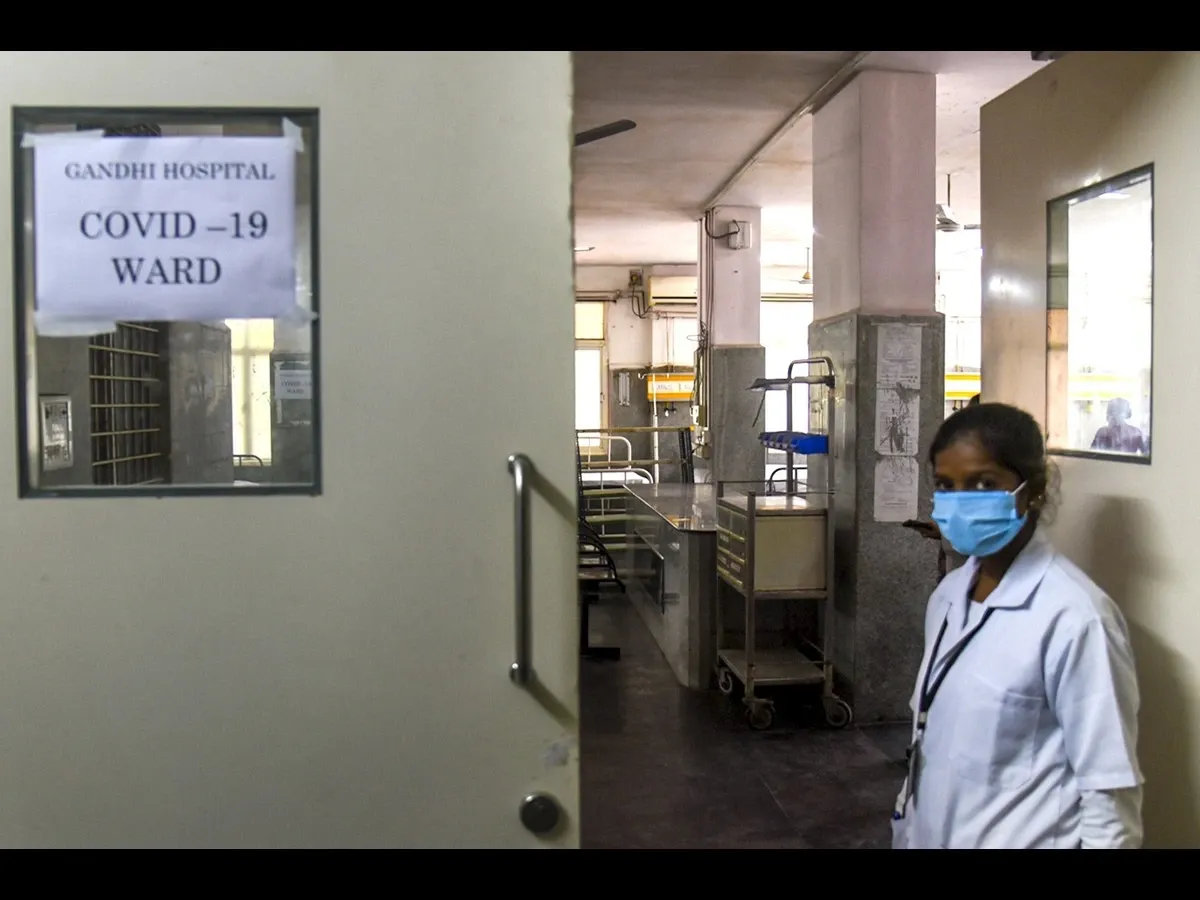Business News
India’s COVID-19 snapshot: Most cases mild, home-isolated; JN.1 still dominant | All you need to know
.png)
4 min read | Updated on May 25, 2025, 13:27 IST
SUMMARY
India is witnessing a mild rise in COVID-19 cases across several states, with most infections classified as mild and managed under home isolation.

A medic at a ward prepared for COVID-19 patients at Gandhi Hospital in the wake of several states reporting Covid cases, in Hyderabad, Saturday, May 24, 2025. (PTI Photo)
A robust pan-India surveillance mechanism is in place through the Integrated Disease Surveillance Programme (IDSP) and the Indian Council of Medical Research’s (ICMR) respiratory virus sentinel network, PTI reported, citing officials familiar with the matter.
“It is observed that most of these cases are mild and under home care,” PTI quoted an official source as saying.
The ministry remains vigilant amid reports of rising cases in countries such as Singapore and Hong Kong, but, according to the PTI report, there is no evidence that the circulating strains abroad are more severe or transmissible than existing ones.
State-wise data: Mild trends, localised spikes
New variants detected: LF.7 and NB.1.8.1
INSACOG (Indian SARS-CoV-2 Genomics Consortium) has detected four cases of the LF.7 variant in Gujarat and one case of NB.1.8.1 in Tamil Nadu. Both variants are classified by the World Health Organization (WHO) as “Variants Under Monitoring (VUMs)” and are not currently considered Variants of Concern (VOCs) or Variants of Interest (VOIs).
The NB.1.8.1 variant includes spike protein mutations — A435S, V445H, and T478I — suggesting enhanced transmissibility and potential immune escape, but WHO continues to rate its global public health risk as low.
The most commonly circulating strain in India remains JN.1, comprising 53% of samples, followed by BA.2 (26%) and other Omicron sublineages (20%), according to INSACOG data.
Doctors urge calm, promote preventive steps
Doctors and medical associations across India are advocating for calm and adherence to basic safety measures.
Dr Dhruv Chauhan, national spokesperson for the Indian Medical Association Junior Doctors Network, described JN.1 as a “non-lethal variant” and encouraged precautions such as mask usage in healthcare and crowded settings, hand hygiene, and consulting qualified professionals for symptoms.
“Panic and chaos can cause more health issues than the disease itself,” he said.
Dr Nihal Singh, an internal medicine specialist, said, "We must understand that while the JN.1 variant is spreading, it has not shown signs of causing serious illness in the majority of cases."
"Panic doesn't help, awareness does. There's no need for fear, only sensible precautions," he added.
Dr Aviral Mathur, Associate Consultant at Sir Ganga Ram Hospital, said "this strain is highly transmissible, though symptoms remain mostly mild".
"Still, prevention is key. We urge the public to wear masks in crowded or enclosed spaces, practice hand hygiene and avoid unnecessary travel if unwell. Make sure your vaccinations, including booster doses, are up to date," he added.
Health infrastructure and response readiness
Several hospitals in the national capital have started preparing by arranging oxygen cylinders, antibiotics, other essential drugs, BiPAP (Bilevel Positive Airway Pressure) machines, vaccines, ventilators and additional isolation beds as part of precautionary measures.
In Telangana, Health Minister Damodar Rajanarasimha convened a high-level meeting on COVID-19 and seasonal disease preparedness. Epidemiologists informed the minister that COVID-19 transitioned to the endemic stage nearly three years ago, and periodic fluctuations in case numbers are consistent with endemic behaviour.
Factors such as herd immunity due to immunization against Covid, the mild nature of symptoms due to the JN.1 variant and the low incidence of hospitalisation, all indicate that the situation is under control, the release said.
By signing up you agree to Upstox’s Terms & Conditions
About The Author
Next Story

